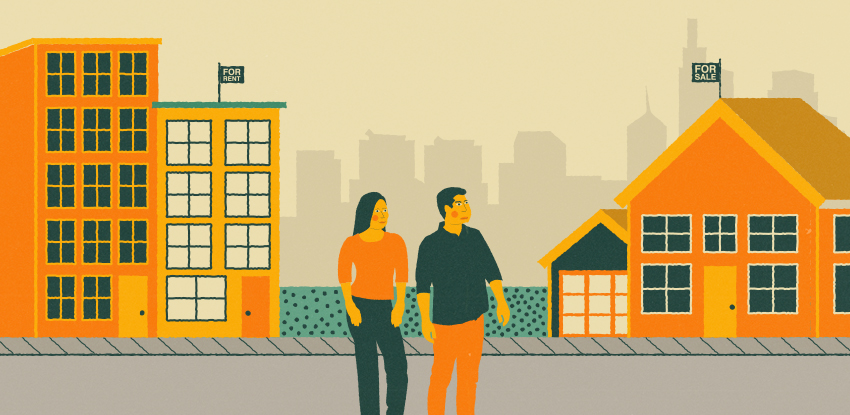Philly is a city of neighborhoods. Each one with its unique housing, cultural offerings, and personality. Renting offers an opportunity to test-drive a particular neighborhood without a long-term commitment. And, just maybe, fall in love. If you’re looking to move to Philly, there are many things to consider so we’ve created this renter’s guide to introduce you to the city’s diverse neighborhoods and give you some tips on leasing in Philadelphia.
A City of Neighborhoods
Society Hill
This is the oldest part of the City located on its easternmost sector, between Market and South Streets. This charming district features cobblestone streets and brick houses in Federal and Georgian styles, as well as contemporary high rises, with no shortage of fine dining, movie theaters, and culture.
Washington Square West
Adjacent to Society Hill, from 6th Street to Broad, this historic neighborhood is centered around one of William Penn’s original parks. It offers a mix of townhouses subdivided into apartments, hi-rise options and adorable Trinities with access to trendy restaurants, theaters, and shops.
Rittenhouse Square
Considered the most desirable real estate in the City, the neighborhood extends well beyond the park for which it is named, extending from Broad Street to the Schuylkill and from Chestnut to Pine Street. It boasts the Kimmel Center and several great restaurants and designer shops in town. While an apartment on the Square is typically in a higher price range, there are also affordable options just a block away.
Bella Vista
Wedged between South Street and Washington Ave, Broad and 6th Street, the focal point of this neighborhood is known as the Italian Market to tourists and 9th Street to locals. This is where you’ll find a population as diverse as the architecture with an abundance of bakeries, markets, and ethnic restaurants. Choose from 19th-century properties to new construction.
Queen Village
East of Bella Vista, historic Queen Village runs from the Delaware River to 6th Street and from South Street to Washington Avenue. It includes a mix of colonial homes and new townhouses with charming side streets, lively shopping, restaurants, and cafes. Plus access to Spruce St. Harbor Park and Penn’s Landing.
East Passyunk
This former Italian neighborhood is sandwiched between Washington Avenue and Tasker Street to the west of Broad. Here, young professionals and artists seeking affordable housing mix with old-timers. Over the years, East Passyunk has become filled with trendy boutiques and has become a hub of nightlife and world-class restaurants. Here, the row house is king and the local community is strong.
University City
Home to the University of Pennsylvania, Drexel University, the University of the Sciences in Philadelphia, and Saint Joseph’s University, the housing choices here are varied. From stately Queen Anne homes of Clark Park to the Victorian charm of leafy Powelton Village and new construction in Mantua. Formerly inhabited by primarily students and professors, the area is now a thriving community for young professionals and families.
Identify Your Requirements
Property Manager and Solo agent Sean Rapp offers potential renters some advice on where to start your search. First, “tenants should start by identifying what they are looking for in terms of space, amenities, location, and price range to help narrow their search.”
When looking at potential neighborhoods, consider what’s important to you. Do you want to be within walking distance of restaurants? Or perhaps, having a small green space to entertain or a community garden nearby is something you prioritize. Make a list of wants but be flexible.
“Once you know what you are looking for and identify a property that interests you, the process really starts by booking a tour of the property,” said Rapp. “They can look through our website on the rentals page for options and reach out to set up a time to view the space in person.”
Love Where You Live
“I’ve rented all across the Philadelphia area over the last 20 years, and experienced all kinds of landlords and management companies,” said Solo tenant Gillian Neff. “Without a doubt, Solo is the best I’ve had. They’re not just responsive, they’re actually proactive in maintaining the property. And the staff are all friendly and pleasant to deal with. I wouldn’t hesitate to recommend them to anyone looking for a new home in town.”
Solo Real Estate has been renting Philadelphia apartments in Center City and surrounding neighborhoods since 1951. We’re a family-owned company and we are committed to providing exceptional service with a personal touch to all our owners and tenants. Our property managers want you to love where you live, and that means finding the right fit.
Interested in renting one of the rentals we manage or want to learn more about our property management services? Reach out to us!


